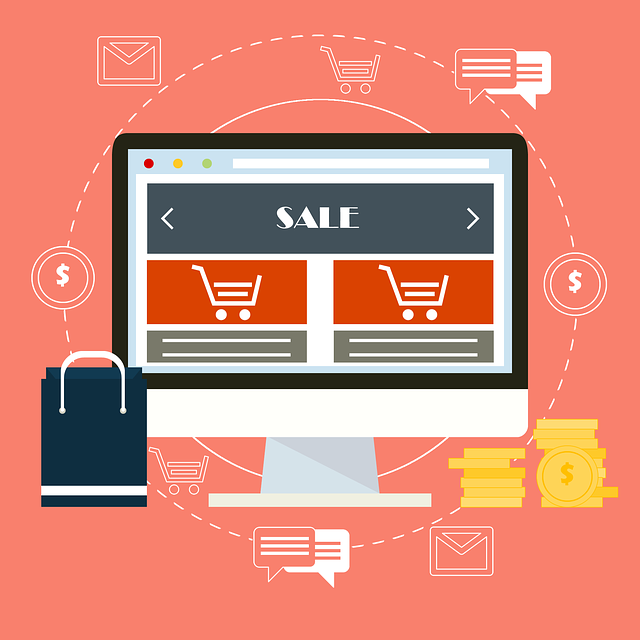
Whether you sell physical products, services, or digital goods, an e-commerce website builder can assist you in launching an online store. Certain platforms are comprehensive and capable of managing multiple selling channels, booking appointments, and processing payments. In contrast, some platforms enable you to create an e-commerce website within minutes.
To find the best e-commerce website builder for your needs, it’s important to consider factors such as affordability, scalability, and user-friendliness. However, the ideal choice will vary depending on your comfort with coding tasks and the specific needs of your business. Below, we provide our recommendations for e-commerce store platforms.
Best e-commerce website builders at a glance
1. Shopify
Shopify, one of the market leaders for individuals seeking to establish an e-commerce business, states that it hosts millions of online stores. Additionally, Shopify offers expedited storefront setup and convenient plug-and-play solutions for various tasks such as inventory management and payment processing.
Who should use Shopify: Businesses that sell physical products, do most of their sales online and value convenient, all-in-one solutions. Read NerdWallet’s review of Shopify.
Where Shopify stands out
Shopify is a convenient website builder for e-commerce that enables you to effortlessly create your own online store without any coding expertise. It provides drag-and-drop functionality, eliminating the need for coding knowledge. Moreover, it offers customizable themes that function as ready-made designs for your store, allowing you to personalize them according to your preferences. Additionally, if needed, you can seek assistance from a Shopify Expert by paying for their services.
Shopify provides additional features such as an all-in-one solution after constructing your e-commerce website.
The practice of providing web hosting services.
You can accept credit and debit card payments directly in your online store using Shopify Payments, eliminating the need for a third-party payment processor. This feature also supports mobile card readers for accepting in-person payments.
Management of inventory.
Shipping, fulfillment, and the process of returning items.
Integrating with social media platforms.
Tools for email marketing.
Shopify offers a pricing plan starting at $29 per month when billed annually ($39 when billed month to month) in addition to credit card transaction fees, allowing you to have unlimited product listings even with this basic plan.
Where Shopify falls short
Shopify does not have a native feature for taking appointment bookings, so businesses that provide services may find it necessary to use a third-party app to enable online appointment bookings.
If you choose to use a payment processor other than Shopify Payments, there will be extra charges. For customers on the Basic plan, Shopify Payments only requires a transaction fee starting at 2.9% plus 30 cents per transaction. However, if you opt for a different payment processor such as Square or Stripe, Shopify will impose an additional percentage fee, potentially reaching 2% per transaction for Basic plan customers.
When using a different payment processor along with Shopify, the transaction fees could amount to approximately 5% of each sale, which includes a charge of 1.5% to 3% along with a small fixed fee per transaction.
2. Square Online
Square Online is a simple, user-friendly e-commerce website builder, especially if you already use Square for in-person sales at your business’s brick-and-mortar location. It’s also one of few free e-commerce website builders. Its customization options and B2B sales features are limited, though, and you’ll have to process payments through Square if you use Square Online.
Square Online is recommended for brick-and-mortar businesses that desire to establish an online store. Please refer to NerdWallet’s review of Square Online.
Where Square online stands out
Square Online is integrated with Square’s point-of-sale system, which has received high ratings from NerdWallet due to its uncomplicated pricing and extensive range of features, such as appointment scheduling and loyalty programs.
The free version of Square Online provides a website builder, POS integration, social media integration, and payments.
Square Online enables you to provide the option of receiving products through in-store pick-up or third-party local delivery, in addition to shipping them directly to your customers’ homes, all while utilizing your physical store location.
Where Square online falls short
Square Online free users do not have the option to use a different payment processor; they must process payments through Square. However, customers who pay a monthly fee have the choice to accept PayPal.
Square Online provides unlimited product listings, similar to Shopify. However, it lacks Shopify’s B2B features for wholesale purchases and its advanced customer segmentation tools. Additionally, to access Square’s email marketing features, which are already included in Shopify’s basic plan, an additional cost of at least $15 per month is required.
3. Wix
Similar to Square and Shopify, Wix is a user-friendly platform for creating e-commerce websites. Its drag-and-drop tools do not require any coding. However, unlike Shopify which focuses primarily on products, Wix provides a range of features catering to various types of businesses, including ticket sellers and dropshippers.
Wix is recommended for businesses that desire the freedom to use their preferred payment processor and require a uniquely designed website. For NerdWallet’s review of Wix, please refer to it.
Where Wix stands out
It is simple to create a personalized website by using Wix’s over 500 website themes. After choosing a theme, you have the ability to customize it using drag-and-drop tools.
In addition to enabling the creation of product listings, Wix provides support for different business models by allowing the sale of subscriptions to exclusive content, tickets, and more. Wix also incorporates dropshipping and print-on-demand features and offers support for subscription boxes.
You have the option to choose your preferred payment processor with Wix. While Wix does provide its own payments solution, you are not obligated to use it. Instead, you can select the most suitable credit card processing company for your business, and Wix will not impose any extra charges.
Where Wix falls short
Wix facilitates sales on marketplaces such as Amazon, Instagram, and Facebook through third-party integration. However, to enable these integrations, you must utilize apps. While app-based integrations can be effective, direct integration is generally a preferable option because using a third-party app entails additional software that requires comprehension and troubleshooting in the event of an issue.
Most of our selections provide unlimited server space for your website’s assets, even on their basic plans. However, Wix is an exception as its Basic plan only offers 50 GB of storage and five hours of video. This limitation may restrict your capabilities until you decide to upgrade your plan.
4. Squarespace
Price range: $23 – $49 per month (billed annually)
- Best website designs
- Great in-built features
- Ideal for creatives
There is an option to sign up for a plan that is free.
The costs for the subscription plans range from $16 to $49 per month.
Pros
- Excellent social media integration
- The best designed templates
- Flexible creative control
Cons
- Lacks payment options
- Only two plans dedicated to ecommerce
- Not most scalable choice
Templates
Make room for this platform if you want to create an impressive portfolio or online business because Squarespace stores are exceptional.
In terms of design, Squarespace scored 4 out of 5 in our research. The online store templates offered by Squarespace are modern, sleek, and intended to display your products effectively. Additionally, you have the flexibility to reconstruct your template whenever necessary, making it ideal for future rebranding purposes.
Features
In contrast to Wix, Squarespace did not perform as well in our evaluation of its sales features. For instance, it does provide support for multichannel selling, but only on Instagram, which is quite limited when compared to platforms like Shopify.
Even with Squarespace’s built-in tools, you will have all the necessary resources to ensure the success of a small store. Furthermore, you have the option to incorporate additional sales features from Squarespace Extensions, available in their app store.
If you are seeking a visually appealing storefront, Squarespace is an excellent option.
Pricing
The Squarespace price plans are also appealing if you choose to subscribe for a year; you will only be charged $23 monthly for the most affordable ecommerce plan (or $33 monthly if you opt for a month-to-month agreement).
To obtain the $23/month plan at a discounted price, you can pay only $20.70/month by applying our unique Squarespace offer code during your initial purchase. Just enter code WBE at the checkout and save 10% on any Squarespace plan.
5. BigCommerce
Price range: $29 – $299 per month
- No platform fees
- multi-channel integration
- Strong SEO support
There is the availability of a free trial.
The cost for the plans range from $29 to $299 per month.
Pros
- Ideal for scaling your business
- No transaction fees
- Has the most sales features
Cons
- Difficult to use
- Features take time to learn too
- Better for larger stores
Features
BigCommerce boasts the largest number of sales features among all ecommerce builders, reducing its dependence on apps compared to platforms like Shopify. BigCommerce outperforms other ecommerce platforms in terms of sales features, achieving an impressive feature rating of 4.6 out of 5 in our tests!
By thinking systematically, it is possible to reduce your expenses while simultaneously utilizing BigCommerce, which happens to be the most expandable ecommerce platform available. Thus, if you have ambitious aspirations for your small business, opting for BigCommerce would be the ideal decision.
BigCommerce allows you to sell through different channels such as Facebook, Instagram, Amazon, eBay, Google Shopping, and Walmart. By doing so, you can broaden the reach of your store without incurring high costs.
The primary drawback of BigCommerce is that its tools are primarily designed to assist in the rapid growth and support of large stores. If you do not have intentions of scaling, you will discover that you are paying for features that are unnecessary for your small business.
Due to this reason, BigCommerce received an average rating of 3 out of 5 for value for money in our study. Additionally, it performed poorly in our ease of use testing due to its utilization of complicated terminology. As a result, it is not the most suitable option for small businesses aiming to establish an online presence quickly and effortlessly.
BigCommerce received high scores for its sales features, which is not surprising, and it offers excellent SEO tools to aid in your business’s discoverability through Google.
Pricing
You have three ecommerce plans to choose from if you want to build with BigCommerce. The cheapest plan starts at $29 per month when billed annually. Additionally, there is a 15 day free trial available for you to try it out before committing to a plan.
For small businesses looking to expand and have access to advanced tools, BigCommerce is an excellent choice. Although it is a powerful ecommerce builder, it is considered average compared to other platforms for small stores.

